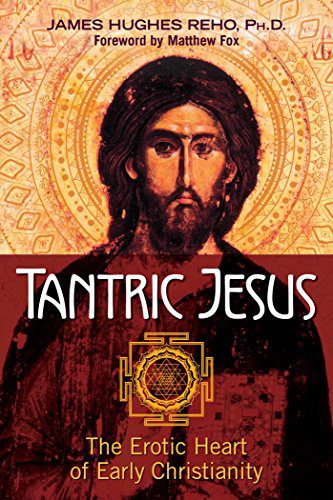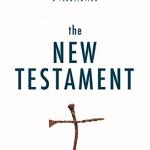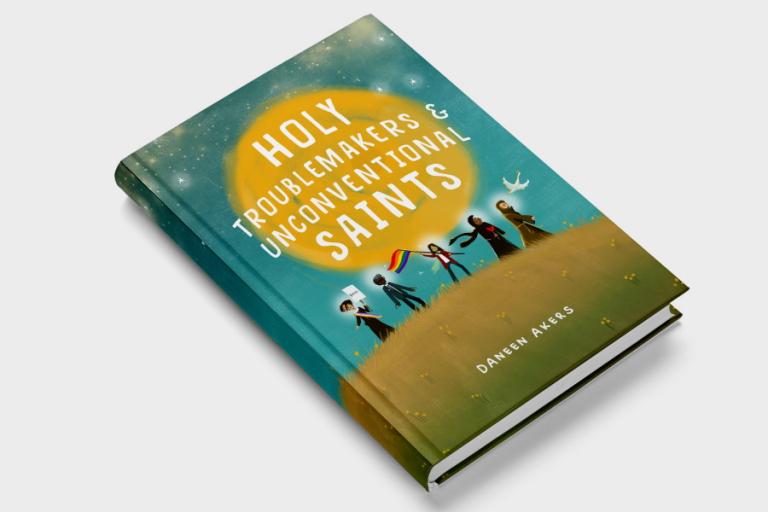“Unbeknownst to many,” claims James Hughes Reho, “the original spirituality practiced in early Christian communities and by Jesus himself was a tantric spirituality.” This fascinating assertion was enough for me to request a copy of his Tantric Jesus from the Speakeasy network to see for myself and review.
The book starts off promisingly, with a foreword by Matthew Fox. As it continues into Reho’s text, I can tell that he’s a good writer. It’s an engaging and enjoyable read. But then I ran into a bit of a snag.
Fourteen pages in, near the end of the first chapter, Reho quotes some early sources. After providing the quotes, he writes, “Such classical statements are often surprising to today’s Christians. This is evidence of how far we have strayed from the roots of the early church.”
What were the sources? Well, he quoted the Gnostic Gospel of Philip for one. And he quoted the heretic Pelagius for another. In other words, these are two sources officially rejected by the early church.
I don’t have any inherent problem with his citing Gnostic or other heretical sources. Even though they were rejected by Christian Orthodoxy, that doesn’t mean they don’t have anything at all to teach us. Had he presented them for what they are, and then gone on to say that we can still learn certain principles from them, that would have been fine. But that’s not what he did.
Even if he had made an argument for the inclusion of such sources as a part of authentic Christianity, I’d have been happy to entertain that. But that’s not what he did either.
He makes no mention of the fact that Pelagius was officially condemned as a heretic. Instead, he refers to him as “the great Celtic theologian.” Personally, I’m sympathetic toward Pelagius. While I don’t agree with the full extent to which he took his theology, I think he was, in certain respects, closer to the truth than his opponent Augustine. But you just can’t reference a heretic as a great theologian and pretend that he represents early Christian thought.
As for the quote from The Gospel of Philip, Reho doesn’t even tell us where it’s from in the main text. You have to go to the footnotes to learn that it comes from The Gospel of Philip, and there’s no mention of the fact that it’s a Gnostic text.
So what Reho has done is this: He’s taken two quotes from the heretical fringes of early Christianity, and he has claimed that they are “classical statements” representing “the roots of the early church.”
This means one of two things. Either A) Reho really believes what he’s saying, in which case he is grossly ignorant of the topic he’s writing about. Or B) he is intentionally twisting the facts to support his thesis. As far as I can tell, those are the only two options, and neither can be overlooked in a book that claims to reveal “the original spirituality practiced in early Christian communities.”
You can’t seriously pretend to know anything about the early church and not know that Pelagius was a heretic or that The Gospel of Philip is Gnostic. This is Church History 101. If Reho really doesn’t know these things, then I can’t believe he knows anything about the early church. Even worse, if he does know these things, then he’s playing fast and loose with the facts, and I can’t trust anything he says about the early church.
And that’s disappointing because I was gearing up to enjoy this book. I’d still love to read a well-informed book on this topic. But I don’t have the time or the patience to fact check every single claim that he makes, which is what I would have to do at this point.
I tried to keep reading a bit further because I really hate it when folks review a book they haven’t finished, but I just couldn’t stay interested any longer. Reho proved himself to be unreliable from the start, and that pretty well killed the rest of the book for me.
If you’re interested in seeing for yourself, you can pick up a copy of Tantric Jesus as a paperback or a Kindle eBook.













